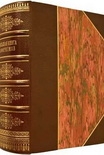The Hermit's Story by Rick Bass (best motivational books of all time txt) 📗

- Author: Rick Bass
Book online «The Hermit's Story by Rick Bass (best motivational books of all time txt) 📗». Author Rick Bass
“You didn’t—you know—engage?” Susan asks, a little mischievously.
Ann shakes her head. “It was too cold,” she says.
“But you would have, if it hadn’t been so cold, right?” Susan asks, and Ann shrugs.
“He was an old man—in his fifties—he seemed old to me then, and the dogs were around. But yeah, there was something about it that made me think of...those things,” she says, careful and precise as ever.
They walked a long way, Ann continues, eager to change the subject. The air was damp down there, and whenever they’d get chilled, they’d stop and make a little fire out of a bundle of dry cattails. There were little pockets and puddles of swamp gas pooled in place, and sometimes a spark from the cattails would ignite one of those, and those little pockets of gas would light up like when you toss gas on a fire—explosions of brilliance, like flashbulbs, marsh pockets igniting like falling dominoes, or like children playing hopscotch—until a large enough flash-pocket was reached—sometimes thirty or forty yards away—that the puff of flame would blow a chimney-hole through the ice, venting the other pockets, and the fires would crackle out, the scent of grass smoke sweet in their lungs, and they could feel gusts of warmth from the little flickering fires, and currents of the colder, heavier air sliding down through the new vent-holes and pooling around their ankles. The moonlight would strafe down through those rents in the ice, and shards of moon-ice would be glittering and spinning like diamond-motes in those newly vented columns of moonlight; and they pushed on, still lost, but so alive.
The small explosions were fun, but they frightened the dogs, so Ann and Gray Owl lit twisted bundles of cattails and used them for torches to light their way, rather than building warming fires, though occasionally they would still pass though a pocket of methane and a stray ember would fall from their torches, and the whole chain of fire and light would begin again, culminating once more with a vent-hole being blown open and shards of glittering ice tumbling down into their lair...
What would it have looked like, seen from above—the orange blurrings of their wandering trail beneath the ice; and what would the sheet of lake-ice itself have looked like that night—throbbing with ice-bound, subterranean blue and orange light of moon and fire? But again, there was no one to view the spectacle: only the travelers themselves, and they had no perspective, no vantage from which to view or judge themselves. They were simply pushing on from one fire to the next, carrying their tiny torches.
They knew they were getting near a shore—the southern shore, they hoped, as they followed the glazed moon’s lure above—when the dogs began to encounter shore birds that had somehow found their way beneath the ice through small fissures and rifts and were taking refuge in the cattails. Small winter birds—juncos, nuthatches, chickadees—skittered away from the smoky approach of their torches; only a few late-migrating (or winter-trapped) snipe held tight and steadfast; and the dogs began to race ahead of Gray Owl and Ann, working these familiar scents—blue and silver ghost-shadows of dog muscle weaving ahead through slants of moonlight.
The dogs emitted the odor of adrenaline when they worked, Ann said—a scent like damp, fresh-cut green hay—and with nowhere to vent, the odor was dense and thick around them, so that Ann wondered if it too might be flammable, like the methane—if in the dogs’ passions they might literally immolate themselves.
They followed the dogs closely with their torches. The ceiling was low—about eight feet—so that the tips of their torches’ flames seared the ice above them, leaving a drip behind them and transforming the milky, almost opaque cobalt and orange ice behind them, wherever they passed, into wandering ribbons of clear ice, translucent to the sky—a script of flame, or buried flame, ice-bound flame—and they hurried to keep up with the dogs.
Now the dogs had the snipe surrounded, as Ann told it, and one by one the dogs went on point, each dog freezing as it pointed to the birds’ hiding places, and Gray Owl moved in to flush the birds, which launched themselves with vigor against the roof of the ice above, fluttering like bats; but the snipe were too small, not powerful enough to break through those frozen four inches of water (though they could fly four thousand miles to South America each year and then back to Canada six months later—is freedom a lateral component, or a vertical one?), and as Gray Owl kicked at the clumps of frost-bent cattails where the snipe were hiding and they burst into flight, only to hit their heads on the ice above them, they came tumbling back down, raining limp and unconscious back to their soft grassy nests.
The dogs began retrieving them, carrying them gingerly, delicately—not caring for the taste of snipe, which ate only earthworms—and Ann and Gray Owl gathered the tiny birds from the dogs, placed them in their pockets, and continued on to the shore, chasing that moon, the ceiling lowering to six feet, then four, then to a crawlspace, and after they had bashed their way out and stepped back out into the frigid air, they tucked the still-unconscious snipe into little crooks in branches, up against the trunks of trees and off the ground, out of harm’s way, and passed on, south—as if late in their own migration—while the snipe rested, warm and terrified and heart-fluttering,





Comments (0)